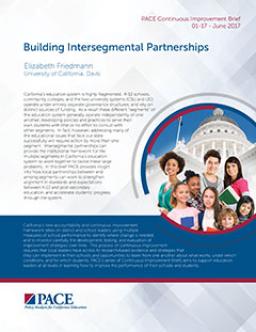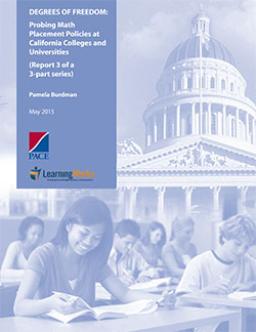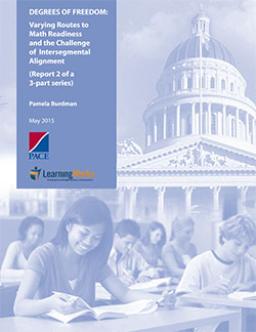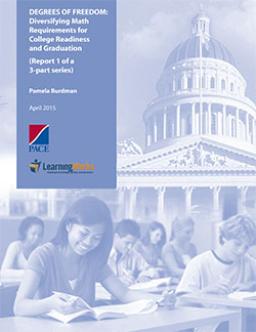College access & postsecondary success

Preparation for college and career is critical for both individual and societal economic prosperity. Yet, educational attainment is not sufficient to meet economic demand and educational opportunities are not equally distributed. State policymakers and education leaders across the state are working to increase opportunity and improve student outcomes.
At the heart of these efforts is better alignment of California’s K–12 education system with higher education systems and the labor market to ensure successful transitions for young adults between high school and postsecondary pursuits.
In this topic area, PACE researchers investigate students’ educational trajectories and the state and local endeavors to decrease disparities in access to educational opportunities and improve student success in college and career.
- ‹ Previous
- 3
- 4
- 5
- Next ›







